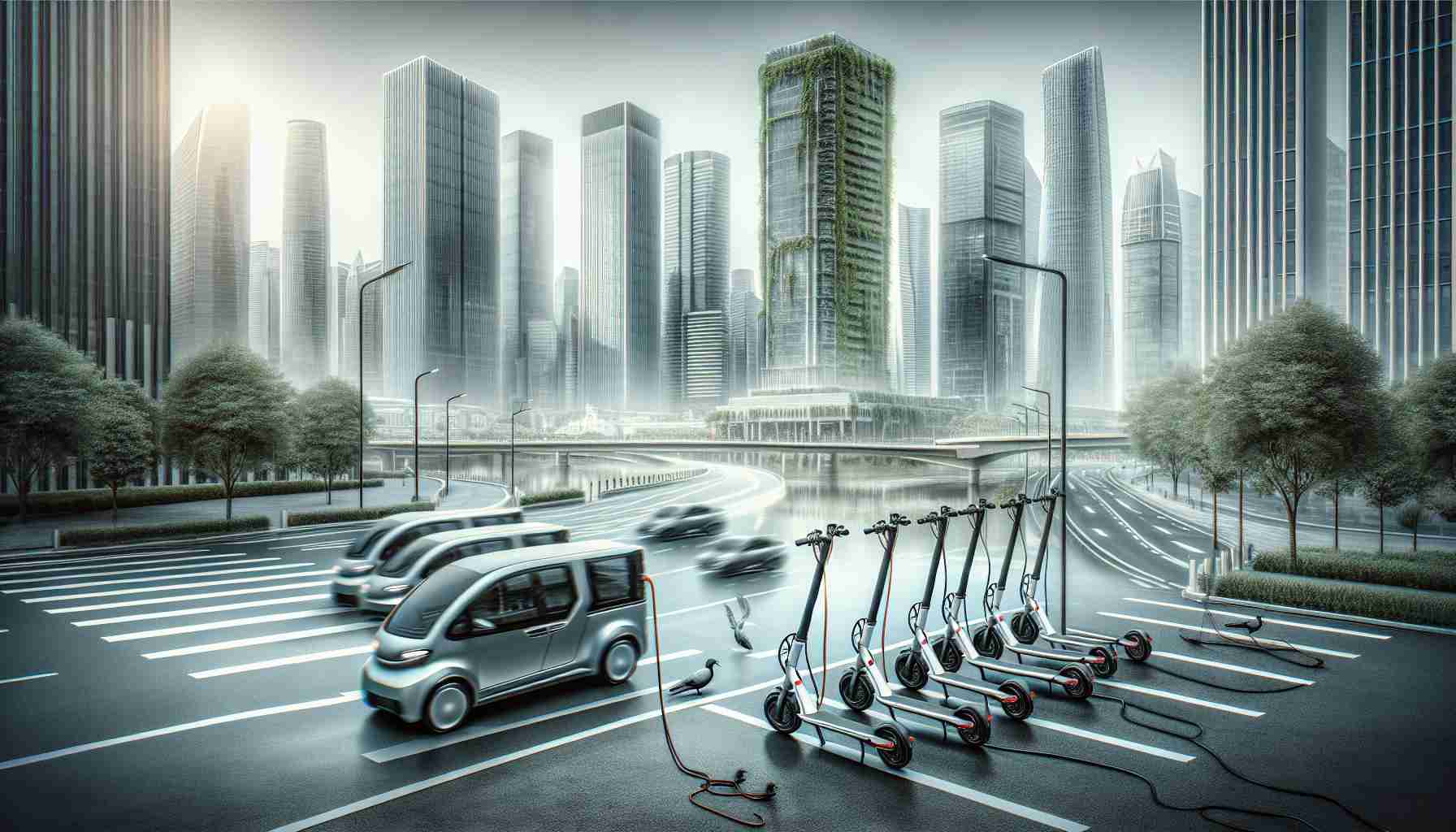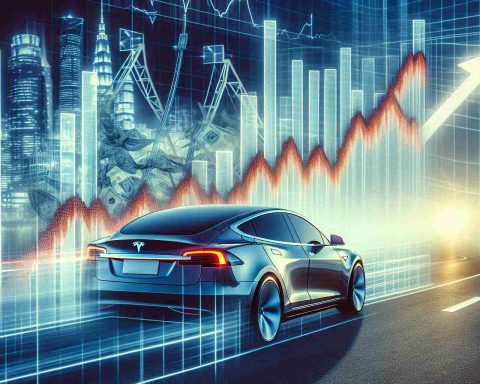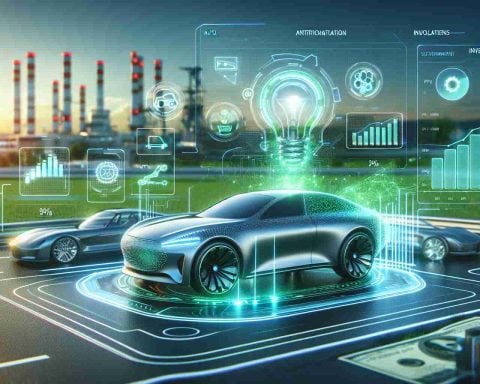A New Wave of Urban Commuting
As urban areas increasingly grapple with congestion and pollution, groundbreaking mobility solutions emerge, redefining how city dwellers navigate their environments. Electric bicycles and scooters are at the forefront, offering eco-friendly and efficient options that promise to transform urban landscapes in 2024 and beyond.
Electric Bicycles: More Than Just a Ride
Electric bikes like the Trek FX+ 7 are setting new standards with their combination of lightweight design and powerful performance. Weighing merely 19 kg yet boasting a strong TQ motor, this bike optimizes speed and battery for efficient daily commutes. Such innovations are not just about convenience; they represent a shift towards sustainable urban living.
Electric Scooters: The Sleek Alternative
The Navee S60 Electric Scooter represents the future with its bold, Cybertruck-inspired design and robust 1000W motor. Its advanced dual suspension makes it a champion on city slopes, despite its heft. While heavy, such scooters are compelling alternatives to traditional urban transport, providing agile and nimble solutions to city challenges.
The Dress Code of Urban Mobility
Enhancements in commuter gear, like the Urban Circus Reversible Parka, cater to the multifaceted needs of city travelers. Combining style and safety with reflective materials, these garments seamlessly transition from casual to professional settings, ensuring versatility amid fluctuating urban climates.
Safety and Style Unite
Riding gear such as the Giro Ethos Mips Shield Helmet illustrates the integration of safety and technology. With LED lights for enhanced visibility, this equipment underscores the critical role of protective apparel in modern commuting.
A Glimpse Into the Future
This electrifying journey into modern urban mobility reveals an exhilarating shift toward greener, smarter cities. As these technologies evolve, they not only enhance individual commuting experiences but also hold the potential to transform entire urban ecosystems. The future is electric, and it’s already buzzing down city streets.
The Electrifying Impact of Urban Mobility Solutions on the Environment and Humanity
As cities battle with the pressing challenges of congestion and pollution, innovations in urban commuting, particularly through electric bicycles and scooters, are becoming a beacon of hope. These eco-friendly alternatives are not just revolutionizing how city residents move around; they are paving the way for more sustainable urban living, with wide-ranging impacts on the environment, humanity, and even the economy.
Environmental Impact
The adoption of electric bicycles and scooters represents a significant shift toward reducing the carbon footprint of daily commuting. Traditional cars are major contributors to urban air pollution, emitting greenhouse gases and particulate matter detrimental to air quality. By transitioning to electric-powered alternatives, cities can drastically reduce emissions. For instance, the Trek FX+ 7 electric bike combines efficiency with zero emissions, promoting cleaner air and healthier urban environments. By 2024, if adoption rates continue to climb, urban areas could witness a substantial decline in air pollutants, leading to improved quality of life.
Impact on Humanity
Beyond environmental benefits, the rise in electric urban mobility options can greatly enhance the well-being of urban populations. These solutions offer a more convenient and accessible means of transportation, contributing to reduced travel times and less stress. The increase in physical activity associated with cycling, even with electric assistance, promotes better health outcomes. Moreover, the Urban Circus Reversible Parka and advanced safety gear like the Giro Ethos Mips Shield Helmet emphasize safety and style, catering to modern commuters’ needs and offering enhanced protection and visibility, thereby reducing the risk of accidents.
Economic Implications
Electric bikes and scooters also promise economic benefits by lowering transportation costs for individuals and cities. The reduction in fuel consumption translates to budget savings for commuters and less dependency on fossil fuels. Cities investing in infrastructure to support these modes of transport, like dedicated bike lanes and charging stations, also create jobs and stimulate economic growth centered around sustainable practices. Urban areas could see an uptick in economic resilience by capitalizing on these trends.
Connections to the Future of Humanity
The movement toward electric urban mobility solutions is more than just a passing trend; it signals a transformative approach to designing future cities. By emphasizing sustainability and efficiency, these innovations align with global goals to combat climate change and create more livable urban spaces. As these technologies integrate into the fabric of daily life, they hold potential to revolutionize how cities are structured, ultimately leading towards a future where urban environments are not only smarter but also more harmonious with the planet.
In conclusion, the shift to electric bicycles and scooters represents a critical step towards sustainable urban development. This wave of mobility solutions not only impacts current urban conditions but also sets the stage for a future where human health, environmental sustainability, and economic prosperity are interlinked, offering a brighter outlook for the generations to come.
Revolutionizing Urban Commuting: 2024 Trends and Innovations in Electric Mobility
Unveiling the Future of Electric Urban Mobility
As cities worldwide face increasing challenges with traffic congestion and pollution, a wave of innovative mobility solutions is emerging. Central to this transformation are electric bicycles and scooters, which promise to redefine urban commuting in eco-friendly and efficient ways. Predicted to significantly shape urban landscapes in 2024 and beyond, these technologies offer a glimpse into a cleaner, more efficient future.
Pros and Cons: Electric Bicycles
Pros:
– Sustainability: Electric bicycles, such as the Trek FX+ 7, offer an environmentally friendly alternative to traditional modes of transportation, reducing carbon emissions.
– Efficiency: With powerful motors and lightweight designs, these bikes are perfect for quick, hassle-free commutes.
– Health Benefits: While providing motor assistance, e-bikes still encourage physical activity, catering to fitness-conscious commuters.
Cons:
– Cost: The initial investment in high-quality electric bikes can be significant, although long-term savings in terms of transportation costs may offset this.
– Infrastructure Challenges: Urban areas need to adapt existing infrastructure to adequately support an increase in e-bike usage.
The Cutting Edge of Electric Scooters
Electric scooters like the Navee S60 are turning heads with innovative designs reminiscent of bold, modern aesthetics. Their potent 1000W motors and dual suspension systems offer superior performance, even on challenging urban terrains. Despite weighing more than some alternatives, their agility and ability to navigate cityscapes seamlessly make them popular choices among urban dwellers.
Market Trends and Insights
The global market for electric bicycles and scooters is witnessing remarkable growth, driven by technological advancements and a heightened focus on sustainability. As urban areas invest in green infrastructure, the adoption rate of these electric alternatives is expected to accelerate. With cleaner cities and smarter transportation systems, electric mobility is not just a technological trend but a crucial component of future urban planning.
Innovations in Commuter Gear
The Urban Circus Reversible Parka exemplifies the fusion of style and functionality, catering to commuters’ diverse clothing needs. Such gear, incorporating reflective materials for safety, transitions smoothly between casual and professional environments, aligning with the dynamic lifestyle of city inhabitants.
Security Aspects: Smart Helmets
In safety gear innovation, the Giro Ethos Mips Shield Helmet introduces integrated LED lights, prioritizing the visibility and safety of commuters. As urban mobility solutions evolve, investing in technologically advanced protective equipment becomes essential, highlighting a shift towards comprehensive safety measures.
Long-Term Sustainability Predictions
The move towards electric mobility not only reshapes the individual commuting experience but also promises transformative impacts on urban ecosystems. By reducing dependency on fossil fuels and minimizing environmental footprints, these technologies champion a more sustainable urban future. As we look to 2024, electric bicycles and scooters represent pivotal steps in the journey towards cleaner, smarter living.
For more details on emerging mobility solutions, visit link name.



















